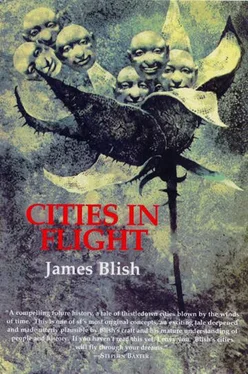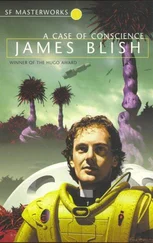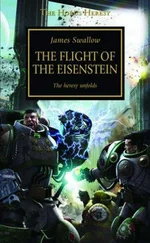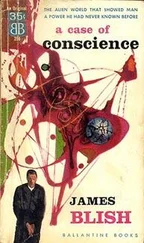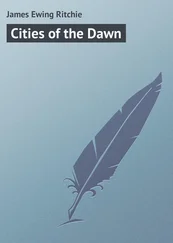James Blish - Cities in Flight
Здесь есть возможность читать онлайн «James Blish - Cities in Flight» весь текст электронной книги совершенно бесплатно (целиком полную версию без сокращений). В некоторых случаях можно слушать аудио, скачать через торрент в формате fb2 и присутствует краткое содержание. Жанр: Фантастика и фэнтези, на английском языке. Описание произведения, (предисловие) а так же отзывы посетителей доступны на портале библиотеки ЛибКат.
- Название:Cities in Flight
- Автор:
- Жанр:
- Год:неизвестен
- ISBN:нет данных
- Рейтинг книги:4 / 5. Голосов: 1
-
Избранное:Добавить в избранное
- Отзывы:
-
Ваша оценка:
- 80
- 1
- 2
- 3
- 4
- 5
Cities in Flight: краткое содержание, описание и аннотация
Предлагаем к чтению аннотацию, описание, краткое содержание или предисловие (зависит от того, что написал сам автор книги «Cities in Flight»). Если вы не нашли необходимую информацию о книге — напишите в комментариях, мы постараемся отыскать её.
Cities in Flight — читать онлайн бесплатно полную книгу (весь текст) целиком
Ниже представлен текст книги, разбитый по страницам. Система сохранения места последней прочитанной страницы, позволяет с удобством читать онлайн бесплатно книгу «Cities in Flight», без необходимости каждый раз заново искать на чём Вы остановились. Поставьте закладку, и сможете в любой момент перейти на страницу, на которой закончили чтение.
Интервал:
Закладка:
“I know some of them quite well, Charity Dillon in particular; after all, I was stationed in the Jovian system for a while. MacHinery’s check will show that I’ve no official connection with the Bridge, however.”
“Good, good,” Gunn said, beginning to brighten. “That widens MacHinery’s check to include the Bridge too, and dilutes it from Pfitzner’s point of view—gives us more time, though I’m sorry for the Bridge men. The Bridge and the Pfitzner project both suspect—yes, that’s a big mouthful even for MacHinery; it will take him months. And the Bridge is Senator Wagoner’s pet project, so he’ll have to go slowly; he can’t assassinate Wagoner’s reputation as rapidly as he could some other senator’s. Hmm. The question now is, just how are we going to use the time?”
“When you calm down, you calm right down to the bottom,” Paige said, grinning wryly.
“I’m a salesman,” Gunn said. “Maybe more creative than some, but at heart a salesman. In that profession you have to suit the mood to the occasion, just like actors do. Now about those samples—”
“I shouldn’t have thrown that in,” Anne said. “I’m afraid it was one good touch too many.”
“On the contrary, it may be the only out we have. MacHinery is a ‘practical’ man. Results are what counts with him. So suppose we take Colonel Russell’s samples out of the regular testing order and run them through right now, issuing special orders to the staff that they are to find something in them—anything that looks at all decent.”
“The staff won’t fake,” Anne said, frowning.
“My dear Anne, who said anything about faking? Nearly every batch of samples contains some organism of interest, even if it isn’t good enough to wind up among our choicest cultures. You see? MacHinery will be contented by results if we can show them to him, even though the results may have been made possible by an unauthorized person; otherwise he’d have to assemble a committee of experts to assess the evidence, and that costs money. All this, of course, is predicated on whether or not we have any results by the time MacHinery finds out Colonel Russell is an unauthorized person.”
“There’s just one other thing,” Anne said. “To make good on what I told MacHinery, we’re going to have to turn Colonel Russell into a convincing planetary ecologist— and tell him just what the Pfitzner project is.”
Gunn’s face fell momentarily. “Anne,” he said, “I want you to observe what a nasty situation that strong-arm man has gotten us into. In order to protect our legitimate interests from our own government, we’re about to commit a real, serious breach of security—which would never have happened if MacHinery hadn’t thrown his weight around.”
“Quite true,” Anne said. She looked, however, rather poker-faced, Paige thought. Possibly she was enjoying Gunn’s discomfiture; he was not exactly the first man one would suspect of disloyalty or of being a security risk.
“Colonel Russell, there is no faint chance, I suppose, that you are a planetary ecologist? Most spacemen with ranks as high as yours are scientists of some kind.”
“No, sorry,” Paige said. “Ballistics is my field.”
“Well, you do have to know something about the planets, at least. Anne, I suggest that you take charge now. I’ll have to do some fast covering. Your father would probably be the best man to brief Colonel Russell. And, Colonel, would you bear in mind that from now on, every piece of information that you’re given in our plant might have the giver jailed or even shot, if MacHinery were to find out about it?”
“I’ll keep my mouth shut,” Paige said. “I’m enough at fault in this mess to be willing to do all I can to help—and my curiosity has been killing me anyhow. But there’s something you’d better know, too, Mr. Gunn.”
“And that is—”
“That the time you’re counting on just doesn’t exist. My leave expires in ten days. If you think you can make a planetary ecologist out of me in that length of time, I’ll do my part.”
“Ulp,” Gunn said. “Anne, get to work.” He bolted through the swinging doors.
The two looked at each other for a starchy moment, and then Anne smiled. Paige felt like another man at once.
“Is it really true—what you said?” Anne said, almost shyly.
“Yes. I didn’t know it until I said it, but it’s true. I’m really sorry that I had to say it at such a spectacularly bad moment; I only came over to apologize for my part in last night’s quarrel. Now it seems that I’ve a bigger hassle to account for.”
“Your curiosity is really your major talent, do you know?” she said, smiling again. “It took you only two days to find out just what you wanted to know—even though it’s about the most closely guarded secret in the world.”
“But I don’t know it yet. Can you tell me here—or is the place wired?”
The girl laughed. “Do you think Hal and I would have cussed each other out like that if the place were wired? No, it’s clean, we inspect it daily. I’ll tell you the central fact, and then my father can give you the details. The truth is that the Pfitzner project isn’t out to conquer the degenerative diseases alone. It’s aimed at the end-product of those diseases, too. We’re looking for the answer to death itself.”
Paige sat down slowly in the nearest chair. “I don’t believe it can be done,” he whispered at last.
“That’s what we all used to think, Paige. That’s what that says.” She pointed to the motto in German above the swinging doors. “Wider den Tod ist kein Kräutlein gewachsen.” “‘Against Death doth no simple grow.’ That was a law of nature, the old German herbalists thought. But now it’s only a challenge. Somewhere in nature there are herbs and simples against death—and we’re going to find them.”
Anne’s father seemed both preoccupied and a little worried to be talking to Paige at all, but it nevertheless took him only one day to explain the basic reasoning behind the project vividly enough so that Paige could understand it. In another day of simple helping around the part of the Pfitzner labs which was running his soil samples-help which consisted mostly of bottle-washing and making dilutions—Paige learned the reasoning well enough to put forward a version of it himself. He practiced it on Anne over dinner.
“It all rests on our way of thinking about why antibiotics work,” he said, while the girl listened with an attentiveness just this side of mockery. “What good are they to the organisms that produce them? We assumed that the organism secretes the antibiotic to kill or inhibit competing organisms, even though we were never able to show that enough antibiotic for the purpose is actually produced in the organism’s natural medium, that is, the soil. In other words, we figured, the wider the range of the antibiotic, the less competition the producer had.”
“Watch out for teleology,” Anne warned. “That’s not why the organism secretes it. It’s just the result. Function, not purpose.”
“Fair enough. But right there is the borderline in our thinking about antibiosis. What is an antibiotic to the organism it kills? Obviously, it’s poison, a toxin. But some bacteria always are naturally resistant to a given antibiotic, and through—what did your father call it?—through clone-variation and selection, the resistant cells may take over a whole colony. Equally obviously, those resistant cells would seem to produce an antitoxin. An example would be the bacteria that secrete penicillinase, which is an enzyme that destroys penicillin. To those bacteria, penicillin is a toxin, and penicillinase is an antitoxin—isn’t that right?”
Читать дальшеИнтервал:
Закладка:
Похожие книги на «Cities in Flight»
Представляем Вашему вниманию похожие книги на «Cities in Flight» списком для выбора. Мы отобрали схожую по названию и смыслу литературу в надежде предоставить читателям больше вариантов отыскать новые, интересные, ещё непрочитанные произведения.
Обсуждение, отзывы о книге «Cities in Flight» и просто собственные мнения читателей. Оставьте ваши комментарии, напишите, что Вы думаете о произведении, его смысле или главных героях. Укажите что конкретно понравилось, а что нет, и почему Вы так считаете.
